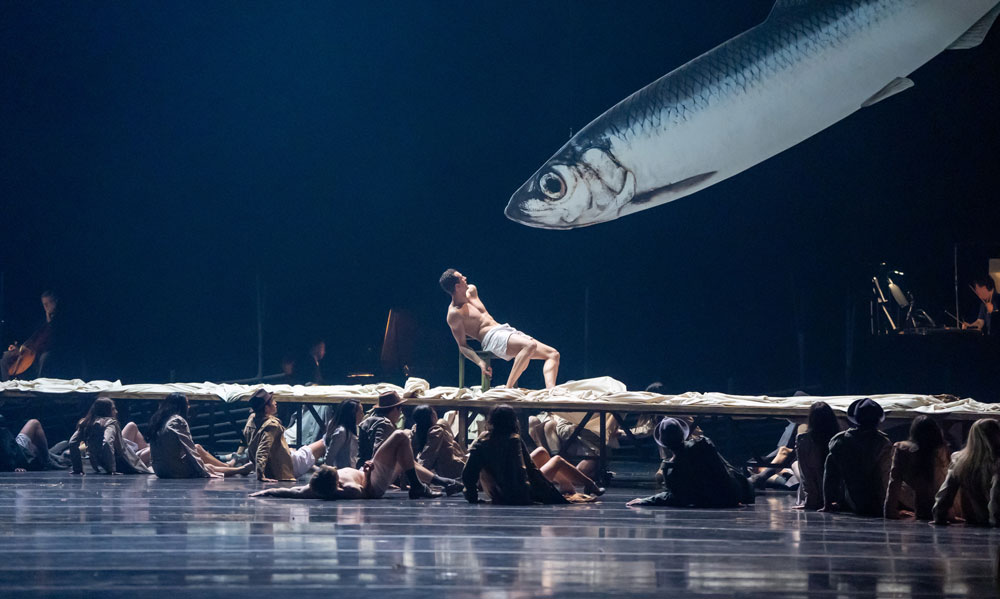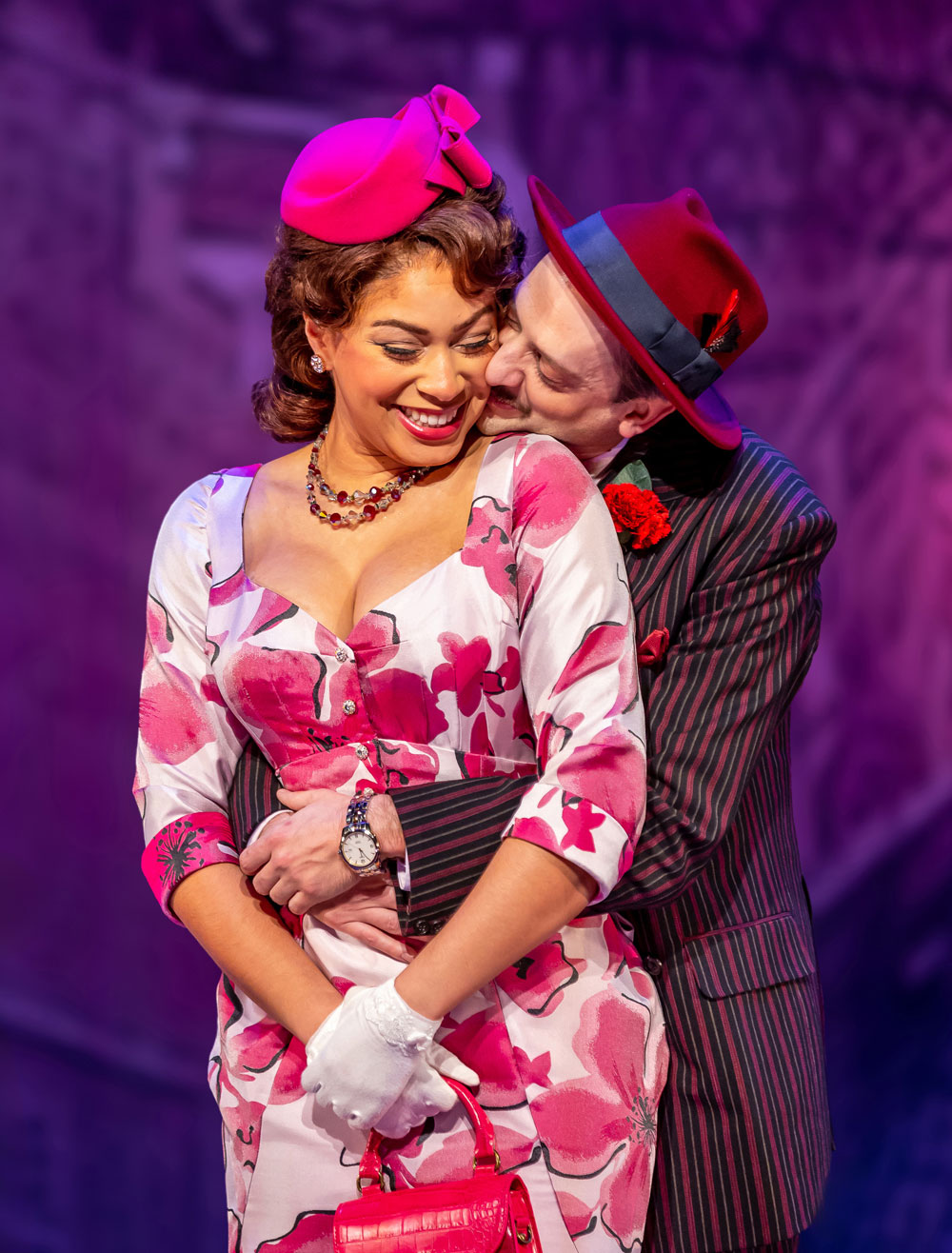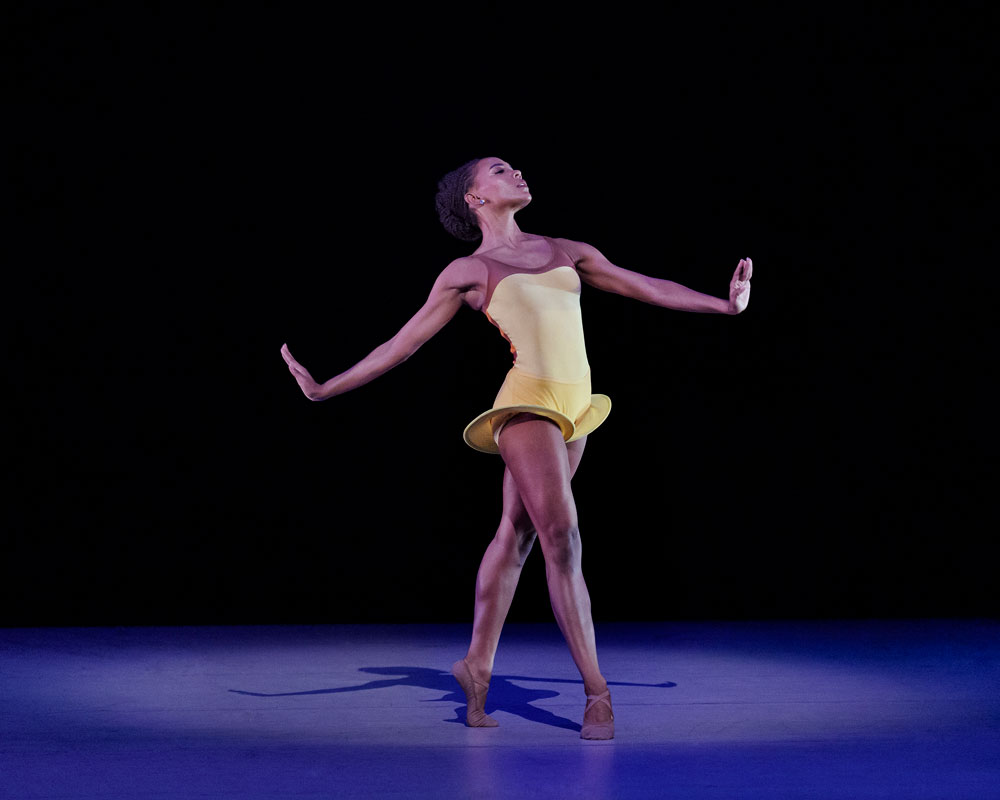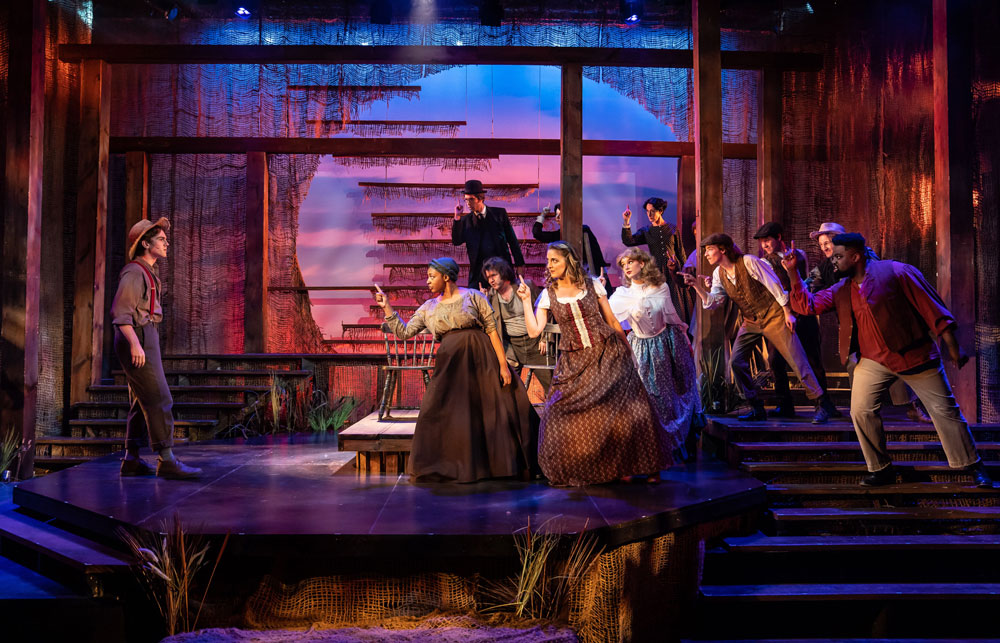
It’s natural to recall the past while contending with the present. Placing the two side by side adds perspective to contemporary life and allows us to give accurate measure to our progress. The current push in some quarters to limit, ban or curtail the full scope of our country’s heritage threatens the integrity of the historical record and poses an inherent danger. It also, according to Christopher Chase Carter, Mercury Theater of Chicago’s Artistic Director, requires a response. One that embraces the complexity of our history and uses it to prepare for a more equitable future. Mercury’s current production of Big River, with Mr. Carter as its director, fills the bill perfectly.
Based on Mark Twain’s classic, The Adventures of Huckleberry Finn, Big River enjoyed massive success when it took Broadway by storm in 1985. Beautifully produced and with a proliferation of splendid acting, this current production deserves a similar reception. A story about friendship across color lines before the Emancipation Proclamation nullified slavery, its center rests just as comfortably on notions of right and wrong. The creation of two sons of Texas, William Hauptman and Roger Miller, Big River’s southern drawl and down home disposition seem to enhance its magnanimous heart and magnify its appeal. With Hauptman adapting Twain’s novel for the stage and the man once heralded as the King of Country writing its music and lyrics, the pair brought another age and place to life as only those steeped in its culture could. Their understanding of country life and southern mores give Big River its richness and allows them to draw characters who take colorful to new dimensions.
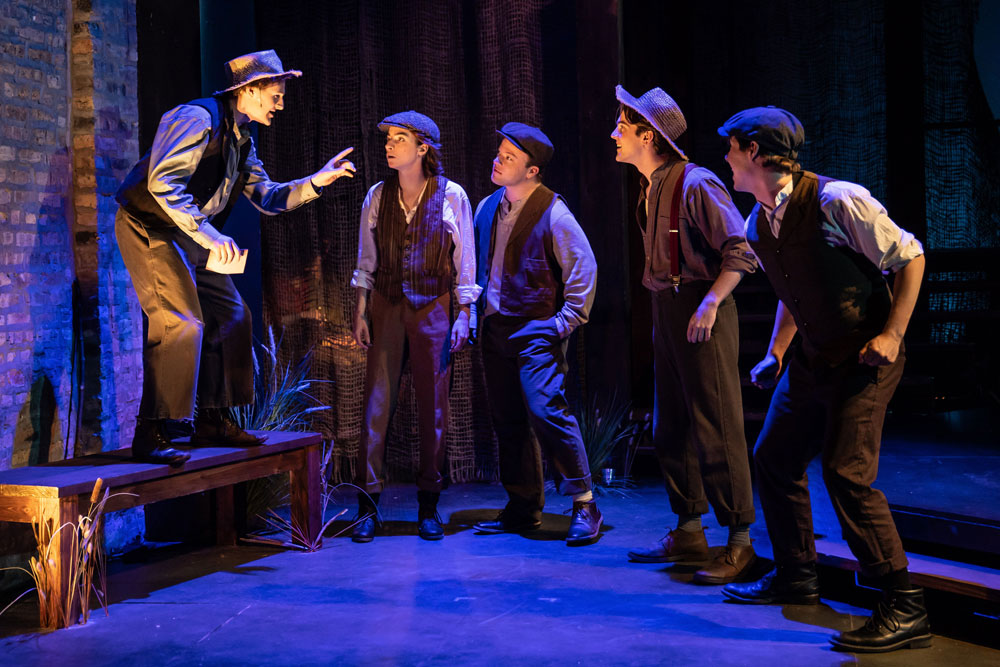
These days, Huckleberry Finn or Huck (Eric Amundson) would be a prime candidate for foster care. Precocious and savvy with a strong sense of self, he’s not blessed with the basic foundations that would steer him to a prosperous and full life. With no mother and a wayward father who’s quite partial to the bottle, Huck’s been living with a widow and her sister. Spirited boys and righteous women make for natural combustion; but all parties genuinely have the best intentions for one another at heart until Huck’s father Pap (David Stobbe) shows up. Back in the custody of a man who’s pathologically opportunistic and prone to psychotic alcohol-fueled tirades, faking his own death and running away simply became a prudent life choice for Huck. Nimbly and often hilariously played by Stobbe, Pap’s character lets you know not to take any of the play’s inhabitants for granted.
Large in concept and scale, by the time Huck makes his break we’ve already been introduced to a host of characters and flooded with superb music spanning the best of Bluegrass, honky-tonk and country. The scope of the project also called for the healing strains of gospel which Miller wove in beautifully. A sterling lyricist, his songs are finely tailored to both the moment and the play’s characters. Specializing in music whose resonance is immediate and compelling, his songwriting manages to be both exhilarant and moving. In Big River, that prowess won him a Tony for Best Original Score. Still the only country artist to win that prestigious honor, he probably would have clinched it with just the ten songs in the first act.

A wholly new dynamic comes into play when Huck crosses path with Jim (Curtis Bannister), a different kind of runaway. The slave of the two women caring for Huck before his father returned for him, Jim and Huck were both already very familiar with one another. It took a second for Huck to realize the provisions Jim had gathered and the raft he had found would be used to actualize his escape. Missouri at that time was a slave state. Jim’s aim was to make it to Cairo, achieve freedom in Illinois, work and eventually come back to buy his wife and children. Huck’s confession that he didn’t know Jim was either married or had offspring was subtly very telling. As an article of property, Jim’s status as a slave made him, through white eyes, devoid of human connections. That unconscious erasure extended down to minds of children. To Huck’s credit, it didn’t take long for him to adjust his thinking and embrace the courage and ambition of Jim’s goals. Each too had something that could help the other. Jim could use Huck’s whiteness to justify his reason for traveling the Mississippi and Huck could benefit not only from Jim’s instincts for survival, but also from his moral integrity.
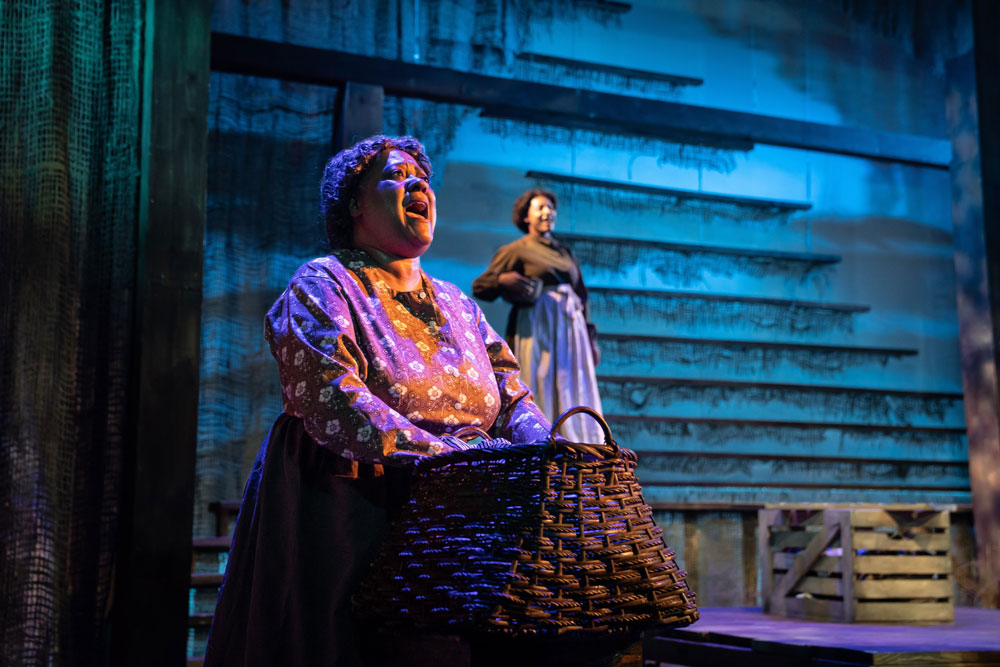
Ethical rectitude, and often the lack of it, played an important role in Big River. Beyond its gorgeously constructed humor, an overriding nobility of spirit makes the central characters of the musical exceptional. Portrayed with natural dignity and displaying the type of naiveté that stems from a lack of exposure rather than deficiencies in comprehension, Jim was a relief and joy to watch. Bannister’s handling of the role was so nuanced and perceptive that you hungered to follow the path of Jim’s life long after the play ended. Equally impressive, Amundson as Huck was a maze of wonder and curiosity as his knowledge of the world and himself grew with each exploit. To insure as much of the true essence of the play’s characters was being projected, Carter and his artistic team enlisted the services an expert. As the owner and founder of Jim’s Journey: The Huck Finn Freedom Center in Hannibal, Missouri, Faye Dant possesses a deep knowledge of “the real-life characters and events in this production”. As Big River’s dramaturg, her input lent an astonishing degree of authenticity to the performance.
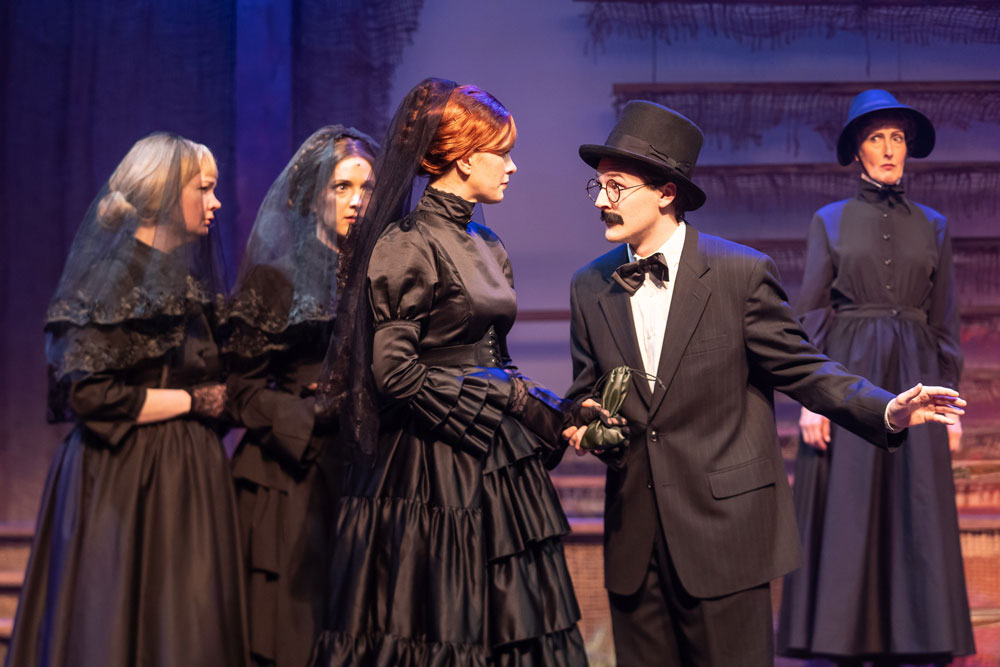
Along with Carter’s keen direction, Dant’s involvement may have contributed to the zany maliciousness of The King (David Strobbe) and The Duke (Gabriel Fries). Con artists and charlatans who scammed their way onto the raft, they could transform from frivolously funny to lethal ruthlessness instantly. Not only embodying the ugly legacy of racism that continues to persist, their presence insured a strong undercurrent of dramatic suspense washed through the second act.
Big River’s four musicians, Hillary Bayley, Scott Sedlacek, Bob Kessler and Cesar Romero had the impact and lushness of an orchestra as they played on the stage’s far left side; barely visible behind a sheer golden veil. Under the musical direction of Malcolm Ruhl, they and the cast brought Broadway to Southport Avenue in majestic style.
On its surface quaint and charming, Jacqueline and Richard Penrod, USA’s set design kept revealing how ingenious and clever it could be; making transitions in the action read fresh and new. Yet one more component locking in the play’s high degree of excellence, it exemplifies the level of care taken to ensure Big River tell its story of possibilities with conviction and strength.
Big River
Mercury Theater Chicago
3745 N. Southport Avenue
Chicago, IL 60613
7:30pm Wednesdays – Fridays
2:30pm & 7:30pm Saturdays
2:30pm Sundays
Ends June 21st, 2023
Regular Tickets: Start at $39
https//www.mercurytheaterchicago.com/big-river
